Hotel operators like asset-light, risk-light
05 MARCH 2019 8:18 AM
Hotel operators need to accept responsibility for the management product they purport to provide under a hotel
management contract, including the actions of the key personnel they have nominated to carry out their contractual
responsibilities.
Hotel operators’ move to an “asset-light” business model has meant divesting themselves not only of their real estate assets, but also much (if not all) of the
business risk associated with operating brand hotels. That includes liability for their own acts and omissions, and those of senior hotel employees operating the
hotel on their behalf.
Under most hotel management agreements, the operator is given exclusive authority to operate the hotel in the name of and on behalf of the owner. The
owner’s ability to influence operations generally is limited to a few approval rights over, for instance, the annual budget and appointment of certain senior
personnel (such as the GM and director of finance nominated by the operator).
The owner is typically obliged to employ all the hotel employees, including the senior personnel. There can be practical
justifications for this—for example, avoiding a taxable presence that onshore employment of these employees by
operator—and the added compliance costs (including employment law costs)—might create. In some jurisdictions
(particularly emerging markets), the owner, as the land owner and holder of the hotel trade licence, must be the
employer to obtain necessary work permits for expatriate employees. However, there is another unmentioned reason
for operator to do this: to shift potential liability exposure in the event of claims for mismanagement.
Operators sometimes retain the right to themselves employ the senior personnel to the hotel and charge the employment
costs back to the owner. This is done primarily for employee benefits reasons (to enable such senior personnel to
participate in group pension, stock or insurance benefits and to provide them a level of security that employment by a
random owner/employer would bring).
But regardless of who legally employs these senior hotel employees, the operator always retains exclusive authority to
hire, fire, train, supervise and direct their day-to-day actions at the hotel. The owner is typically prohibited from
interacting with them, other than a once-a-month meeting to discuss the hotel’s performance. Yet, despite having no
control over the hotel operations or the hotel employees, the owner is generally expected to provide a full indemnity
covering all claims arising from the operation of the hotel by the operator, and all liability relating to the hotel employees
and senior personnel, including those related to their employment, such as claims for wrongful dismissal.
While some operators will accept liability for claims arising from the operator’s own fraud, gross negligence or wilful
misconduct in their contracts, this is the exception rather than the rule, and almost never extends to the fraud, gross
negligence or wilful misconduct of these senior employees directly operating the hotel. Operators will further define
gross negligence and wilful misconduct so narrowly as to make it almost impossible for an owner to ever bring a claim
against them. Add to this difficulty the fact that gross negligence is not a formally defined term under common law (or
many legal systems), albeit many courts do recognize a distinction that it is a higher liability standard than simple
negligence. This makes the distinction of what is/is not included in these terms’ contract definition all the more important.
One can see the obvious disconnect in this employment relationship: an owner’s employees acting for, and taking exclusive directions from, the operator to
directly carry out the operator’s management of the hotel. Nonetheless, the owner assumes all risk and liability for, but has no control over, the hotel
operations by operator, including these senior hotel personnel.
Operators argue this risk allocation is justified because they are limited-risk service provider receiving only a small portion of the profits from the hotel’s
success. They argue they merely provide the operational know-how to run the hotel to their “brand standards,” with the owner ultimately bearing the risk for
how successfully (or not) that know-how is put into action by the hotel employees. However, this argument conveniently ignores the reality that the owner has
no control over the hotel operations. Moreover, operators can receive 10% or more of the hotel’s gross revenues from operations with no corresponding
investment risk, which is a substantial amount of participation in the hotel’s success. As such, it is not unreasonable to expect the operator to retain at least
some liability for its own actions/omissions and those of its senior personnel.
Operators should be responsible for their own gross negligence or wilful misconduct, including that caused by those senior personnel they have chosen to
Opinions
By Scott Antel and Stephen Greyling
Copyright © 2008-2019 STR, Inc. Page 1 / 2
success. They argue they merely provide the operational know-how to run the hotel to their “brand standards,” with the owner ultimately bearing the risk for
how successfully (or not) that know-how is put into action by the hotel employees. However, this argument conveniently ignores the reality that the owner has
no control over the hotel operations. Moreover, operators can receive 10% or more of the hotel’s gross revenues from operations with no corresponding
investment risk, which is a substantial amount of participation in the hotel’s success. As such, it is not unreasonable to expect the operator to retain at least
some liability for its own actions/omissions and those of its senior personnel.
Operators should be responsible for their own gross negligence or wilful misconduct, including that caused by those senior personnel they have chosen to
operate the hotel on their behalf. There should be no excuse available to the operator like, “Well he is your employee, not ours.” when in substance those
senior employees take their directions from the operator. Or at least impose operator liability limited to an agreed cap or a cap to the extent not covered by
insurance. This would help to refocus operators on managing their branded hotel properties and perhaps reduce the suspicion that they are more interested in
managing their brands than their hotels.
Scott Antel is a Senior Hospitality & Leisure Partner with Bryan Cave Leighton Paisner based in Dubai. He has more than 25 years ’ experience in structuring and negotiating hotel and branded
residence projects in emerging markets, including Russia/CIS, Turkey, the Middle East and Africa.
Stephen Greyling is a senior associate in BCLP’s Real Estate team based in Singapore, and advises on the acquisition and disposal of real estate assets with a focus on hotels, as well as the negotiation of
hotel management agreements.
The opinions expressed in this column do not necessarily reflect the opinions of Hotel News Now or its parent company, STR and its affiliated companies. Bloggers published on this site are given the
freedom to express views that may be controversial, but our goal is to provoke thought and constructive discussion within our reader community. Please feel free to comment or contact an editor with
any questions or concerns.
Copyright © 2008-2019 STR, Inc. Page 2 / 2

